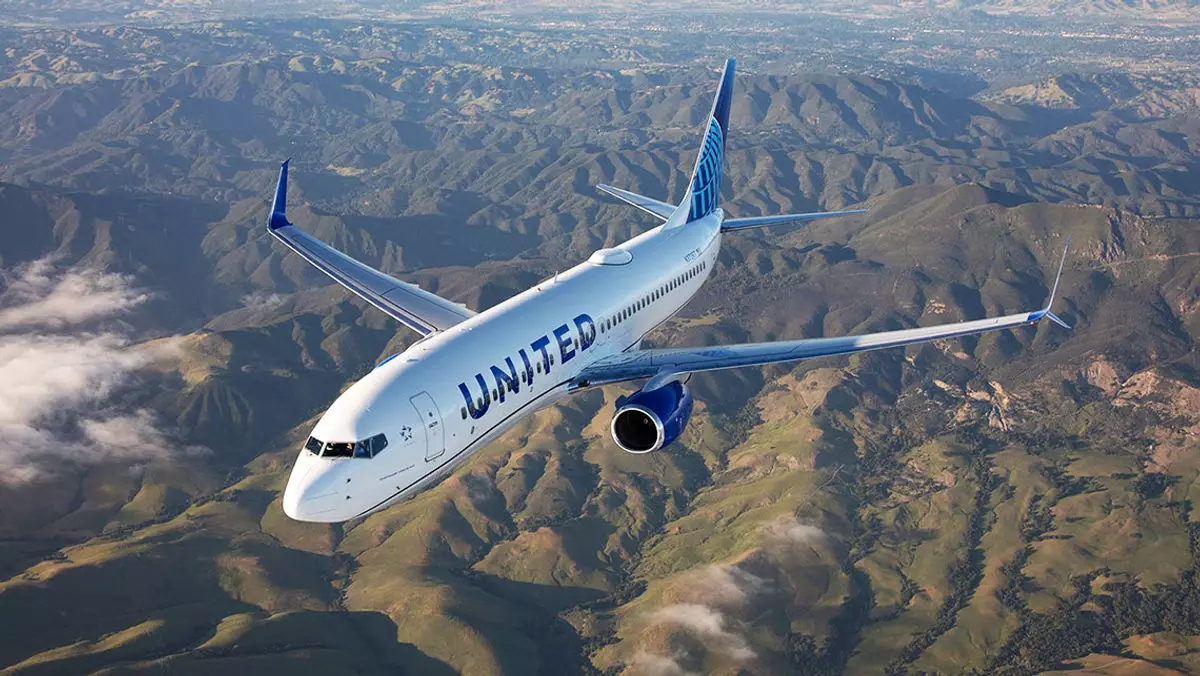United Airlines is making waves in the aviation world with an ambitious plan to expand its international routes next summer. The airline has revealed its intention to add eight new destinations, a move that not only enhances its global presence but also caters to the growing demand for unique travel experiences. Among these new locales are two notable firsts for any U.S. airline: direct flights to Greenland and Mongolia. This strategy, as articulated by Patrick Quayle, United’s Senior Vice President of Global Network Planning, is set to focus on delivering enriching travel experiences and connecting passengers to some of the world’s most intriguing places.
The newly introduced routes will cover Nuuk (Greenland), Ulaanbataar (Mongolia), Kaohsiung (Taiwan), as well as diverse European sites including Faro and Madeira in Portugal, Bilbao in Spain, Palermo in Italy, and Dakar in Senegal. Significantly, only Dakar currently benefits from U.S. carrier service, and its route is managed by Delta Airlines. Meanwhile, Palermo is only served twice weekly through Italy-based leisure airline Neos. United plans to operate five of these new routes from its Newark hub, while flights to Dakar will depart from Washington Dulles International Airport.
This exploration of unique destinations underscores United’s strategic pivot toward catering to a more adventurous traveler demographic. The choice of Nuuk is particularly interesting; its appeal is enhanced by recent infrastructural developments, such as the expansion of Nuuk Airport’s runway and terminal, making access to this remote destination possible with a Boeing 737 Max 8.
The majority of the new routes will be seasonal, aligning with the patterns of travel demand that peak during warmer months, between May and July. However, United is also adapting its offerings to provide year-round service on select routes, including daily flights between Tokyo and Kaohsiung and thrice-weekly flights between Washington D.C. and Dakar. This strategic differentiation allows the airline to tap into both seasonal leisure travel as well as business travel demands.
The push for destinations like Ulaanbataar reflects a broader trend in air travel wherein U.S. carriers are now positioning themselves to better leverage shifts in connectivity, particularly as travel routes through China have diminished since the pandemic. This reconfiguration of service points highlights United’s adaptability in a rapidly changing travel landscape.
Quayle emphasizes that these unconventional route selections provide more than just new flight options; they create memorable journey experiences that travel enthusiasts seek. The less explored destinations align with United’s strategy to differentiate itself in a highly competitive market by introducing enticing travel offerings that aren’t just focused on the most conventional tourist hotspots.
This initiative is reflective of United’s broader strategy that began gaining momentum in 2019. Since then, the airline has already made significant strides into more remote and culturally rich regions, including Cape Town, Ponta Delgada in the Azores Islands, and Dubrovnik, Croatia. Such moves emphasize the airline’s commitment to providing its customers with a broader spectrum of travel options that veer away from the ordinary.
By venturing into unique and relatively uncharted territories, United Airlines not only enhances its appeal to a wider range of travelers but also positions itself favorably against its competitors. The introduction of exotic destinations is an elemental factor in customer engagement, particularly in bolstering loyalty programs through co-branded credit cards that attract adventurous consumers. Quayle’s analysis indicates a direct correlation between the addition of unique routes and the airline’s capacity to expand its customer base, suggesting that this strategy is not merely about increasing flight numbers but is also about evolving the traveler’s experience.
United Airlines’ strategic expansion into international routes signifies a definitive shift towards catering to an adventurous clientele. The airline’s efforts to provide direct services to lesser-known destinations not only enhance travel experiences but also establish United as a forward-thinking player in the global airline industry. As travel continues to evolve post-pandemic, the airline’s approach will likely resonate well with those eager to explore beyond the mainstream tourist path.

